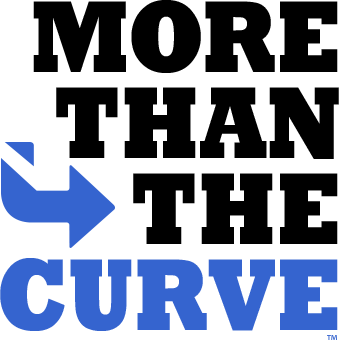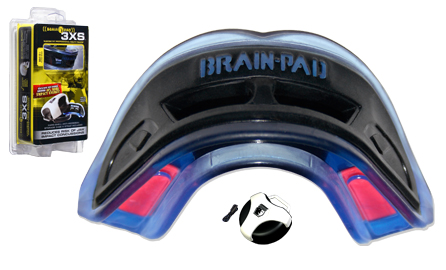One of the major discussions taking place within the NFL, and sports in general, is about concussions and how to prevent them. Brand-Pad, a Conshohocken-based company, that makes mouth guards, is part of the debate. Michael Coleman of the Albuquerque Journal interviewed Brain-Pad owner Joe Manzo for the below story:
Super Bowl XLVI kicks off this afternoon amid growing public awareness of the human damage inflicted by football’s brutally violent – and yes, visually exhilarating – collisions.
National Football League players have long accused the league of neglecting their health and safety, especially when it comes to head injuries. Today, the NFL plans to take the issue, um, head on during the Super Bowl with a 60-second commercial demonstrating its commitment to reducing risk of player injuries.
The spot, directed by Peter Berg, who created the critically acclaimed “Friday Night Lights” television show, is sure to be slick and compelling. What it might not be is entirely accurate. More than 300 players – including, most recently, former Dallas Cowboy Tony Dorsett – have sued the league for negligence. They claim the NFL didn’t adequately inform players about the risk of concussions and failed to provide sufficient health care for those suffering from football-related brain injuries after retirement.
What does all this have to do with New Mexico politics? Well, you might recall that Sen. Tom Udall, D-N.M., is leading a charge in Congress to examine the issue of sports-related concussions, the marketing of sports safety equipment and the correlation between the two.
Udall has introduced legislation that would give helmet companies nine months to improve their now-voluntary safety standards. If the manufacturers don’t comply, the Consumer Product Safety Commission would be required to set mandatory standards. The bill would also give the Federal Trade Commission authority to pursue civil penalties against companies that make false injury prevention claims to help sell helmets and other sports equipment.
The bill, which so far lacks a single Republican co-sponsor, appears to be going nowhere fast in the Senate. But the false injury prevention claim provision has apparently already ensnared a small-business owner in Pennsylvania.
Joe Manzo is president and founder of a company that manufactures a product called Brain Pads. He told me he was stunned to learn that during a high-profile hearing on Capitol Hill last fall, his company was singled out for making dubious safety claims. He said no one from Udall’s office contacted Brain Pads officials to notify them of the hearing or the fact that his company would be subjected to public scrutiny.
“We want to be a part of the discussion, we don’t want to be a part of the problem,” Manzo said. “We’re going to show them so much documentation on the science that I think they’re going to be shocked.”
A spokesman for Udall said the senator’s office did inform the national Sporting Goods Manufacturing Association of the hearing and the fact the Brain Pad product would be highlighted. Brain Pad’s vice president, Christopher Bolan, is listed as serving on the association’s governmental affairs board.
Manzo’s product, essentially a specialized mouth guard, is designed to reduce the amount of force the jaw sustains from a physical blow. He says that reduction of force – and some experts agree – can help prevent so-called jaw-joint concussions, which occur at the base of the brain from a blow to the jaw.
Brain Pad’s packaging states that it “reduces risk of concussions from lower jaw impacts.” But that claim was met with skepticism by experts at Udall’s hearing.
“There is no clear evidence that any mouth guard or chin guard reduces either the rate or severity of concussions, so I would have great objection to his claim,” said Dr. Ann McKee, a respected neuropathologist at Boston University.
However, a team of five medical specialists trained in brain and jaw injuries hosted a symposium on joint-jaw concussions last year. They wrote a paper afterward that concluded “a dual arch, dual channel dental appliance” – such as the one sold by Brain Pads – “has the potential to reduce forces transmitted through the jaw upon impact.”
Manzo said shortly after last fall’s Senate hearing he got a letter from the FTC asking for reams of documentation.
“It took my lawyer three weeks to answer all of their requests,” he said.
It’s important to note that Udall’s bill doesn’t say Brain Pads can’t sell its products. It is the way they are marketed – as reducing risk of concussions – that are objectionable if the claim can’t be proven.
Manzo told me the next major shipment of his popular product is already on the way and will soon be on shelves at sporting goods stores, complete with claims of concussion risk reduction and despite being called out as fraudulent in the Senate Commerce Committee. Manzo said he is convinced he is making sports safer for athletes, not more dangerous. The International Martial Arts Union Association recently seemed to agree, mandating that all of its participants use some type of joint-jaw protector like Brain Pads.
Udall also thinks he is on a righteous mission.
“The last thing we want is for student athletes who are already at risk of concussions to be overconfident on the field due to misleading information about their protective gear,” he said in a statement last year.

